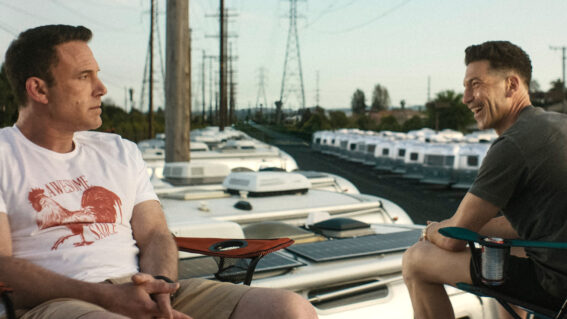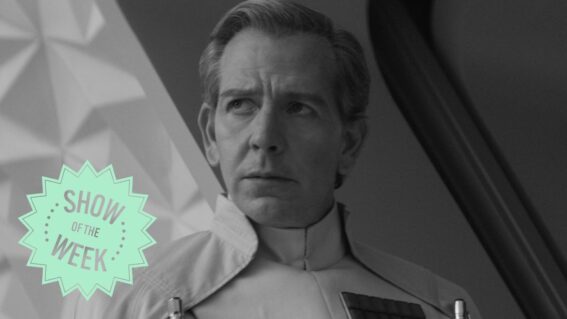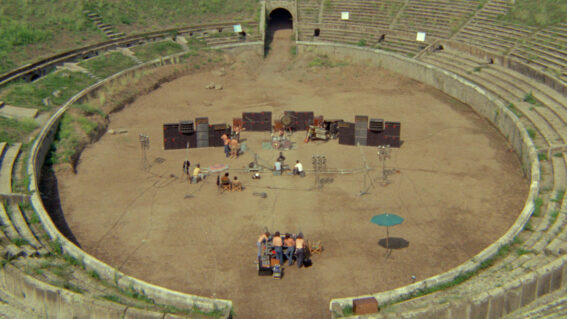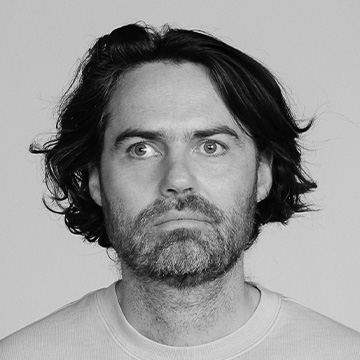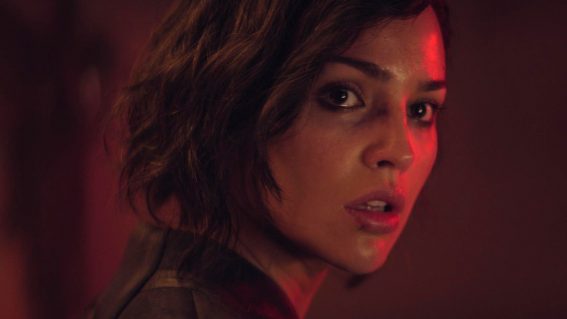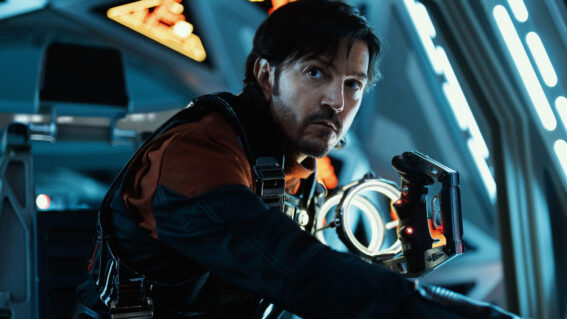Retrospective: It’s weird that 1989 audiences didn’t appreciate Al Yankovic’s UHF
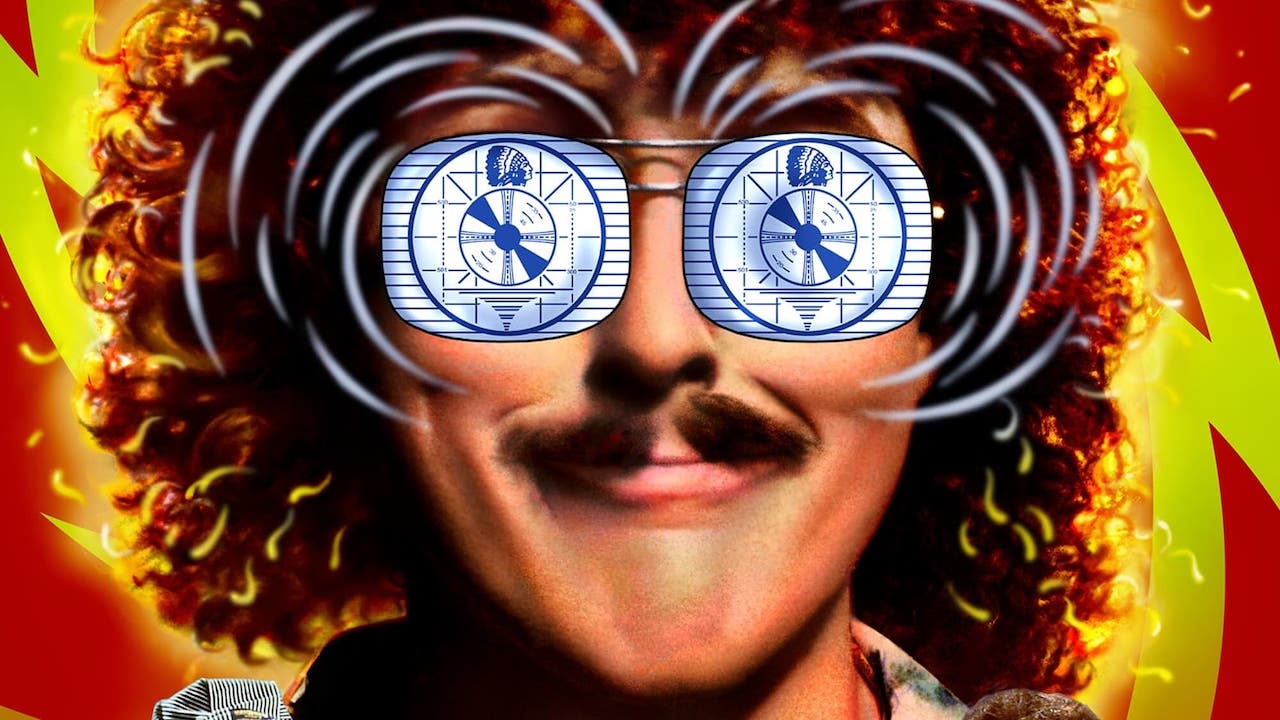
With generations of parody-loving fans and a goofy new biopic out, Weird Al Yankovic deserves to have his first crack at big-screen greatness reappraised. Eliza Janssen spins the Wheel of Fish and wins a rewatch of UHF, with Al’s commentary track included.
Homer Simpson once intoned that “he who is tired of Weird Al is tired of life”. If anyone should know, it’s probably Homer, a fellow Gen X icon whose show has long been plagued with criticisms of depreciating relevance while Al stays fresh and funny as ever.
Despite pumping out relatively one-joke song parodies since the early 1980s, Alfred Yankovic has had surprising staying power as the comedy world’s wholesome musical jester. Weird: The Al Yankovic Story, a brand new tongue-in-cheek biopic of his life and career, sees fellow enduring pop culture battler Daniel Radcliffe slapping on that accordion and thin moustache. It is, prestigiously enough, a “Roku original”, making it difficult to watch for any Al fans outside the United States.
There’s a few reasons the broader public hasn’t grown tired of Yankovic’s clever, whiny catalogue. Firstly: he and his band have got legit musical acumen, sometimes producing send-ups that have better production and performances than their source material.
Secondly: he’s always wise enough to dump out a new album of contemporary parodies, tour to loving international fans, then step out of the spotlight for a few years, never sticking around too long to sour the joke.
And lastly, he seems for all intents and purposes to be a genuinely decent guy, never outright mocking his subjects or going for mean, tacky gags when there’s a superior, sillier couplet to choose.
The broader public, though, didn’t have much love for Al’s first attempt to adapt his shtick to the big screen. Released in 1989, UHF was a clear attempt to narrative an existing comedy character into a big-leagues cinematic vehicle (à la 1985’s Pee-Wee’s Big Adventure or 1992’s Wayne’s World), with the scattershot, gag-a-minute approach that worked so well in Zucker Brothers’ movies like Airplane!.
Right from the title, select demographics are alienated: younger viewers today probably have no fricking clue what “ultra-high frequency analog television” is, and international audiences at the time were similarly bamboozled, leading the studio to retitle the film to “The Vidiot from UHF” in some regions.
In the film’s harebrained commentary track, Al and director/longtime manager/Gandhi 2 leading man Jay Levey consider this “the worst movie title of all time”. They share an attitude towards the studio meddling surrounding their project that’s immediately apparent when Al gently sings along to the starry Orion production logo before the film even starts: “Ooorion, ooorion/is bankrupt/now.”
The film’s plot sees Al play an underdog loser championing an abandoned local TV station up to the top of the Nielsen ratings, but it’s mostly a framework for segments parodying everything from trashy late-night B-movies (Conan the Librarian) to lame local commercials (“Nothing says ‘I love you’ like a spatula…Spatula City”). Parody is Al’s whole bag, and the toughest critics of UHF complained that a lengthy remake of Dire Straits’ then-groundbreaking “Money For Nothing” music video whack-bang in the film’s centre was its sole worthwhile scene—stick to the music video stuff, why don’tcha.
TBH it’s probably my least favourite sequence, a real play-the-hits moment when UHF’s real strengths are its eclectic supporting cast (Kevin McCarthy! Fran Drescher! Gedde Watanabe!) and, weirdly, all the gags about movies from way way back. Sure, there’s Rambo and Indiana Jones take-offs, capitalising on the biggest heroes and franchises of the day. But we also get gleeful nods to respected classics like Network (“these floors are dirty as hell and I’m not gonna take it anymore!”) and The Treasure of the Sierra Madre (“Badgers? Badgers!? We don’t need no stinking badgers!”).
UHF‘s corny structure throws together misfits and has them desperately put on a show with the unorthodox tools available, often letting Seinfeld’s Michael Richards, as a simple-minded janitor who becomes an unlikely kid’s TV sensation, steal Yankovic’s leading man spotlight. Beyond being funny, there’s something genuinely sweet and wholesome happening here: an attention to the surreal wonder and genius living inside every person.
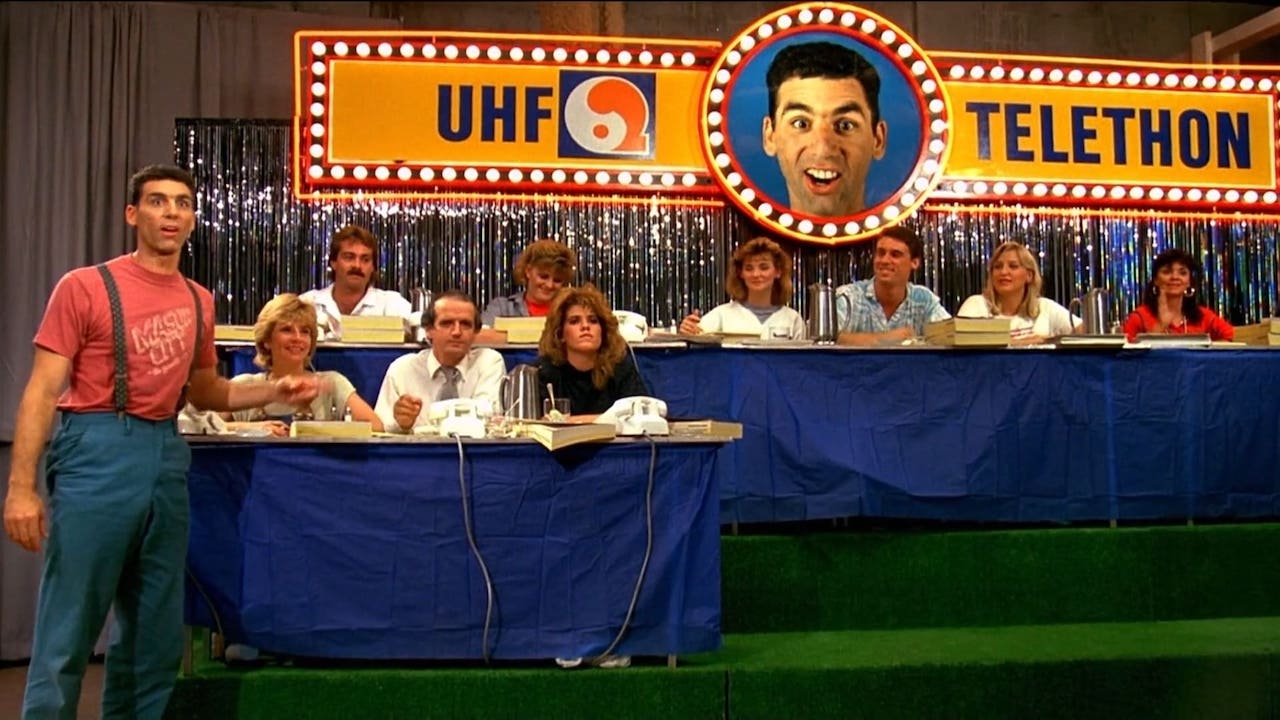
It extends into the movie’s commentary, too, with Yankovic proudly rattling off minute details of every cast and crew member’s credits (“there’s Francis Carlson playing Old Blind Man With A Rubik’s Cube”) and even the exact address of filming locations (“this was 66/36 South Knoxville, nice place”).
UHF is hard to find on streaming services, and in fact the patchy plague of a million new, under-stocked platforms with monotonous libraries kept springing to mind while watching the film. Wouldn’t it be sweet if we had a few UHF-esque madmen tasked with populating these pointless services? Perhaps Quibi would’ve survived a bit longer with Al’s programming mind behind the desk, greenlighting shows like Wheel of Fish, Leave it to Bigfoot, and Wild World of Phlegm. I’d certainly tune into that sweet, silly frequency, anytime.







